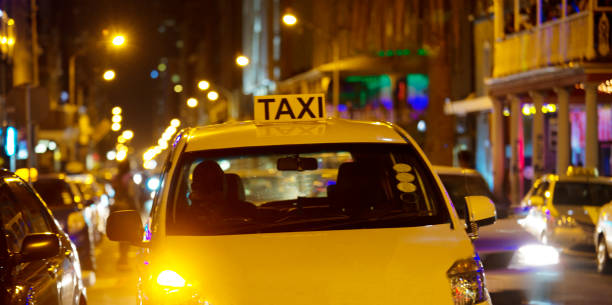
Madinah and Makkah, where pilgrims and residents rely on taxi services, have increasingly become the focus of attention when considering how Taxi Fare from Madinah to Makkah should be determined. As we move closer to 2024, it becomes imperative that we reevaluate and possibly revamp the existing fare system to guarantee fairness and transparency for all parties involved.
Introduction Taxi Fare from Madinah to Makkah structures play an integral part in daily life for locals and visitors alike, and understanding them is critical to passengers and taxi drivers.
Current Taxi Fare System
Taxi fares are determined based on several factors, including distance traveled, time of day, type of vehicle used, and various calculations that often lead to confusion and dissatisfaction among passengers.
Current System is Overburdened With Challenges
Passengers and drivers need help with numerous difficulties, such as unclear pricing structures and fluctuating fuel costs that hinder community trust and satisfaction.
Technology Integration
Integrating GPS and real-time data analysis can provide more accurate and transparent fare calculation processes, helping ensure passengers are charged fairly. At the same time, drivers receive equitable compensation for their services.
Government Regulations Government regulations are pivotal in shaping the taxi fare landscape. Clear and enforced laws help create a level playing field between service providers and protect passengers’ interests.
Community Feedback
Listening to the voices of the community is vitally important. Seeking feedback from passengers and drivers alike can reveal specific pain points or areas ripe for improvement in the current fare system.
Economic Factors Economic factors, including inflation and currency exchange rates, affect taxi fares enormously. Understanding and acting against them is vital to maintaining stable and safeguarding pricing structures.
Compare Alternative Transport Modes
Analyzing the cost-effectiveness of taxi services versus other modes of transport provides insight into their unique value proposition, both for passengers and policymakers alike. This comparison should help illustrate their unique value proposition and showcase why taxi services remain relevant today.
Future Projections for Taxi Fares
Looking forward to 2024, technology advancements may dramatically affect taxi fares. Anticipating these changes allows for proactive adjustments of the fare system.
Environmental Considerations
As environmental concerns gain prominence, incentive schemes that promote environmentally friendly transportation options should become part of the fare structure for increased sustainability.
Negotiation Strategies for Passengers
Empowering passengers with negotiation strategies ensures fair fares can be secure, opening communication lines between passengers and drivers.
Driver Training at Fair Prices
Investment in driver training programs is critical. Ensuring drivers understand fair pricing practices increases customer satisfaction.
Case Studies
Reviewing successful implementations of Jeddah Airport to Makkah Taxi Fare systems elsewhere provides invaluable insight. Because practical solutions that can be implement here in Madinah and Makkah.
Public Awareness Campaigns
Educating the public about their rights as passengers and the importance of fair taxi pricing is vitally essential, creating a more informed and empowered community. Awareness campaigns can aid this cause.
Conclusion
Solutions: Setting taxi fares between Madinah and Makkah in 2024 requires an integrated approach. By considering current challenges, embracing technology, and gathering community input. An equitable fare system that benefits passengers and drivers. Contributes to overall city well-being can be establish.

